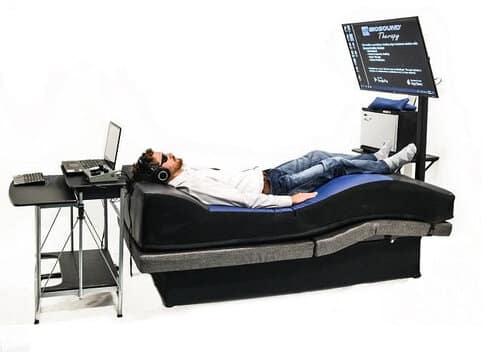Request a Callback
"*" indicates required fields
Psychiatric Evaluations
Mental illness affects millions of people worldwide, significantly impacting their quality of life and overall well-being. To effectively treat these conditions, it is crucial to have a comprehensive understanding of the individual’s mental health. This is where psychiatric evaluations play a vital role.
Psychiatric evaluations are thorough assessments conducted by trained professionals to diagnose and treat mental health disorders. These evaluations provide a comprehensive overview of an individual’s psychiatric history, symptoms, and potential underlying causes. By gathering this essential information, healthcare providers can develop personalized treatment plans tailored to the individual’s needs.
Moreover, psychiatric evaluations help to identify any co-occurring disorders and provide insights into the best course of treatment.
These evaluations also facilitate effective communication and collaboration among different healthcare providers involved in the patient’s care.
Overall, psychiatric evaluations are indispensable in accurately identifying and treating mental illness. They empower healthcare professionals to make informed decisions and provide the most appropriate interventions, leading to improved mental health outcomes for individuals experiencing these challenges.
What Is A Psychiatric Evaluation?
A psychiatric evaluation is a thorough assessment conducted by trained professionals to diagnose and treat mental health disorders. This evaluation provides a comprehensive overview of an individual’s psychiatric history, symptoms, and potential underlying causes.
By gathering this essential information, healthcare providers can develop personalized treatment plans tailored to the individual’s needs.
Psychiatric evaluations involve a variety of methods, including interviews, questionnaires, and psychological tests.
The Role Of Psychiatric Evaluations In Mental Health Diagnosis
- During the evaluation, the healthcare professional will assess the individual’s symptoms, behavior, and emotional well-being.
- They will also explore the individual’s personal and family history of mental health conditions.
- By thoroughly assessing these factors, the healthcare professional can make an informed diagnosis.
- This is essential because accurate diagnosis is the foundation for effective treatment.
- Without a proper diagnosis, it is challenging to develop an appropriate treatment plan that addresses the individual’s specific needs


Benefits Of Psychiatric Evaluations For Patients
Psychiatric evaluations offer numerous benefits for patients struggling with mental health conditions.
- Firstly, these evaluations provide a safe and confidential space for individuals to discuss their symptoms and concerns. Empowering to seek help or share their experiences.
- Moreover, psychiatric evaluations help to identify any co-occurring disorders. By identifying these co-occurring disorders, healthcare providers can develop comprehensive treatment plans that address all aspects.
- Psychiatric evaluations also facilitate effective communication and collaboration among different healthcare providers. This interdisciplinary approach ensures that the individual receives holistic care.
Types Of Psychiatric Evaluations
There are various types of psychiatric evaluations, each tailored to meet specific needs. Some common types include:
- Initial psychiatric evaluations: This is the first step in diagnosing a mental health condition. They involve gathering information about the individual’s psychiatric history, symptoms, and current concerns.
- Emergency psychiatric evaluations: These evaluations are conducted in emergency settings, such as hospitals or crisis centers, to assess individuals who are in acute distress or at risk of harm to themselves or others.
- Forensic psychiatric evaluations: These evaluations are conducted within the legal system to assess an individual’s mental state and its impact on their ability to stand trial, make informed decisions, or be held accountable for their actions.
- Child and adolescent psychiatric evaluations: These evaluations focus on assessing the mental health of children and teenagers. They take into account developmental factors and aim to provide appropriate interventions at a young age.
The Process Of A Psychiatric Evaluation
The process of a psychiatric evaluation typically involves several steps.
- It begins with an initial interview, during which the healthcare professional gathers information about the individual’s background, symptoms, and concerns.
- Following the interview, the healthcare professional may administer various assessments and tests to further evaluate the individual’s mental health.
- Once all the necessary information has been gathered, the healthcare professional will analyze the data and make a diagnosis.
- They will then develop a customized treatment plan for the individual’s includes therapy, medication, lifestyle changes, or a combination of interventions.


We believe in Holistic Therapies.

Biosound Therapy
Biosound Therapy is the integration of Biofeedback, Therapeutic Music, sound healing massage, and guided imagery. The guided imagery selections on the Biofeedback Bed are designed to address the guilt, fear, shame and trauma associated as underlying issues for most dealing with addiction. These moving meditations begin with a journey to a completely relaxed state of mind. Then, utilizing a unique echo effect, powerful and positive affirmations are delivered. This combination helps the client overcome those deep rooted, negative patterns of thought and behavior.
- Relieves pain & stress
- Assists with Detoxification Treatment
- Lowers cravings, impulse behavior and racing thoughts
- Lowers anxiety & depression

Equine Psychotherapy
Equine-Assisted Therapy is used to treat patients challenged with everything from drug and alcohol abuse dependency and post-traumatic stress syndrome. The therapy takes advantage of the mental and physical exercise that working with a horse can provide. Equine therapy:
- Helps clients learn to identify and cope with feelings
- Promotes Effective Communication Skills
- Helps Addicts Better Manage Behavior
- Teaches How to Set Boundaries
- Restores Self-Esteem and Self-Worth
*This is an optional, additional therapeutic therapy available after clinical treatment hours.

Massage Therapy
Clients at Relevance receive weekly massage therapy from our Licensed Therapists. Some additional benefits include:
- Release of ‘feel-good’ hormones. According to the American Massage Therapy Association (AMTA), massage helps to increase serotonin and dopamine (feel-good hormones) and decrease cortisol which is related to stress.
- Reduce agitation and anxiety and ease sleep problems.
- Provides a natural, alternative method of healing, free of drugs.
- Helps with the removal of metabolic waste. Therapeutic massage triggers or stimulates the body’s parasympathetic nervous system. This in turn can increase circulation and promote the effectiveness of the lymph system. The lymph system helps to alleviate pain symptoms and is responsible for removing the body’s metabolic waste build-up.
- Provides the client with a connection to their body, and improves or increases body awareness.
Common Assessments Used In Psychiatric Evaluations
Psychiatric evaluations utilize a range of assessments and tests to gather information about an individual’s mental health. Some common assessments and tests include:
- Diagnostic and Statistical Manual of Mental Disorders (DSM) criteria: The DSM is a manual used by healthcare professionals to classify and diagnose mental health disorders. It provides a standardized framework for assessing symptoms and making diagnoses.
- Personality assessments: These assessments explore an individual’s personality traits, behavior patterns, and coping mechanisms, providing insights into their overall mental well-being.
- Cognitive assessments: These assessments evaluate an individual’s cognitive functioning, such as memory, attention, problem-solving, and decision-making abilities. They help identify any cognitive impairments or deficits.
- Depression and anxiety scales: These scales measure the severity of depressive or anxiety symptoms and provide a snapshot of the individual’s emotional well-being.
- Substance abuse assessments: These assessments screen for substance use disorders and help determine if substance abuse is contributing to the individual’s mental health symptoms.
How Psychiatric Evaluations Aid In Treatment Planning
- By gathering comprehensive information about the individual’s mental health, healthcare professionals can make informed decisions about the most appropriate interventions.
- If the person suffers from major depressive disorder or bipolar disorder, the healthcare professional can recommend evidence-based treatments tailored to that specific condition.
- Psychiatric evaluations also help identify any underlying causes or contributing factors to the individual’s mental health symptoms. For instance, if the evaluation reveals a history of trauma, the healthcare professional can incorporate trauma-focused therapies.
- Additionally, by regularly assessing their symptoms and functioning, healthcare professionals can adjust the treatment plan as needed to ensure optimal outcomes.


Challenges Of Psychiatric Evaluations
- Firstly, symptoms and experiences can vary greatly among individuals, making it challenging to establish clear diagnostic criteria.
- Furthermore, psychiatric evaluations rely heavily on self-reporting, which may be influenced by factors such as stigma, cultural differences, or memory biases. This can affect the accuracy of the information gathered during the evaluation.
- Another limitation is the availability and accessibility of mental health professionals trained in conducting psychiatric evaluations.
- They provide valuable insights into an individual’s mental health, laying the foundation for effective treatment and improved outcomes.


The Importance Of Psychiatric Evaluations
Understanding the individual’s past experiences helps healthcare providers gain a holistic view of their mental health journey.
Additionally, the comprehensive evaluation enables healthcare providers to make accurate diagnoses and develop targeted treatment plans.
Furthermore, by recognizing these co-occurring disorders, healthcare providers can address multiple aspects of the individual’s mental health, leading to more effective treatment outcomes.


Get the Help You Need, Now.
Start your journey to substance abuse recovery with us in New Jersey today.





